15.1: Dialogue
- Page ID
- 142359
Dialogue
| Charles Brown se spécialise en français. Il en est content: il aime ses cours, il aime la langue et la littérature française, et il a eu l'occasion d'étudier en France pendant une année scolaire0. Pourtant il s'inquiète à cause des questions que lui posent ses amis, ses parents. II décide d'aller voir son prof de français. Il frappe à la porte... | 0 année...academic year |
|
| PROFESSEUR | Entrez! Ah, bonjour Charles, comment allez-vous | |
| CHARLES | Très bien, merci. Auriez-vouz un instant pour me parler? | |
| PROFESSEUR | Mais bien sûr. De quoi s'agit-il? | |
| CHARLES | Il s'agit du français, mais pas de mes cours. Mes amis et ma famille me demandent tout le temps: "Le français, à quoi ça peut bien te servir?" Et puisque je ne sais jamais quoi répondre, je voudrais que vous me donniez une bonne réponse. | |
| PROFESSEUR | Euh, oui, en effet... C'est une bonne question. (Silence.) En apprenant une langue étrangère, vous... mûrissez... (Silence.) Vous vous cultivez... vous comprenez le monde un peu mieux... | |
| Le téléphone sonne. Soulagé, le profaprès s'être excusé auprès de0 Charles répond. | 0 s'être...having excused himself from | |
| PROFESSEUR | Alio? Babette? Ça fait plaisir0 de vous entendre. Vous venez d'obtenir un poste avec SORTEC? Mais je vous en félicite. C'est une excellente agence publicitaire. Comment? Parce que vous savez parler français on vous a tout de suite augmenté votre salaire et on vous a donné de l'avancement0? C'est remarquable et j'en suis absolument ravi. Écoutez, vous tombez pile0. J'ai un étudiant dans mon bureau qui s'inquiète et voudrait savoir s'il y a de bonnes raisons pour apprendre le français. Pourriez-vous lui parler un peu de votre poste? C'est très gentil de votre part, merci.... Charles, voici une bonne réponse. | 0 fait...is a pleasure 0 vous...gave you an advancement 0 vous ...you've called just at the right time |
| Et le prof lui passe le téléphone. | ||
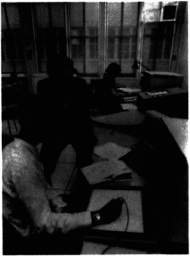
Exercice I
First, write five questions that you would ask Babette if you were Charles. Then, imagine that you are Babette and prepare answers to probable questions that someone like Charles might ask.
Questions et Réponses
A. When did you buy this house? / I bought it five years ago.
- —Quand as-tu acheté cette maison?
- —Je l'ai achetée il y a cinq ans.
- —Quand est-elle allée en France?
- —Elle y est allée il y a deux mois.
- —Quand est-ce que François est arrivé?
- —Il est arrivé il y a cinq minutes.
- —Quand a-t-on construit cette pyramide?
- —On l'a construite il y a plus de quatre mille ans, n'est-ce pas?
Grammar Notes: As with so many other partially idiomatic constructions, this use of il y a to express when (more precisely, "how long ago") something happened is more a lexical matter than a grammatical one. We simply use the tense expected, the passé composé, with il y a plus an expression of time ("so many years, or minutes, or days," etc.). The il y a phrase is usually at the end of the sentence.
Note: You now have "officially" learned at least three ways to answer the question "when" in reference to something that occurred in the past: you can use il y a... to indicate how long ago it happened; you can use an adverb or adverbial phrase (hier, la semaine passée, dans mon enfance); you can use a subordinate clause, introduced by "when" (Je suis allée à Paris quand j'avais dix-sept ans). We'll ask you to use all of these in exercises from now on. Try to use the one that is the most natural for what you want to express.
Exercice II
Answer the following questions, using in question 1 the il y a construction, in question 2 an adverb or adverbial phrase, in question 3 a subordinate clause introduced by quand. (Write your answers on separate paper. You may want to do this again later.)
- a. Quand est-ce que tu es arrivé(e) à l'université?
b. Quand est-ce que l'Algérie a gagné son indépendance? - a. Quand avez-vous téléphoné à vos parents?
b. Quand est-ce que tu es allé(e) à la bibliothèque? - a. Quand est-ce que Marie t'a téléphoné?
b. Quand a-t-on annoncé que les japonais avaient attaqué Pearl Harbor?
Questions et Réponses
B. How long have you been here? / I've been here for six hours.
- —Depuis quand es-tu ici?
- —Je suis ici depuis une demi-heure.
- —Depuis combien de temps étudiez-vous le français?
- —J'étudié le français depuis deux semestres.
- —Depuis quand joue-t-il du piano?
- —Il joue du piano depuis quinze ans.
C. How long have you been here? / I've been here since six o'clock.
- —Depuis quand es-tu ici?
- —Je suis ici depuis six heures.
- —Depuis quand étudiez-vous le français?
- —J'étudie le français depuis le mois de septembre.
- —Depuis quand joue-t-il du piano?
- —Il joue du piano depuis l'âge de sept ans.
Grammar Notes: All these depuis questions are about something still going on (an action or a continuing state/condition). As we can in English, it is possible in French to indicate how long ago something started by (1) stating the amount of time it has been going on, as in exercise B, or (2) stating when it first started, as in exercise C. French is simpler than English in that it doesn't use a special verb construction to express something begun in the past, still going on. One just uses the present tense, with this depuis construction or with another construction, as illustrated in exercise D below.
D. How long have you been here? / I've been here for six hours.
- —Depuis combien de temps es-tu ici?
- —Il y a six heures que je suis ici.
- —Depuis quand étudiez-vous le français?
- —Il y a deux semestres que j'étudie le français.
- —Depuis combien de temps joue-t-il du piano?
- —Il y a quinze ans qu'il joue du piano.
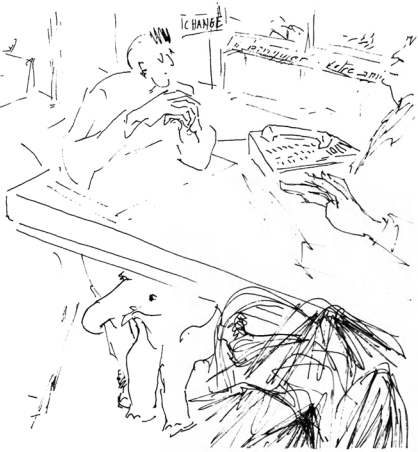
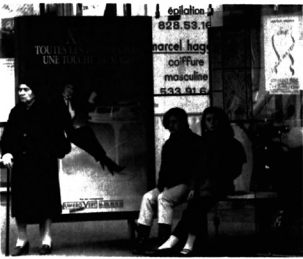
Grammar Notes: This time we answered the questions again with expressions of time (duration), but with the phrase il y a... que. Note that we've used depuis combien de temps in the question sets here, as we did once in exercise A. That simply focuses on "period of time." You don't have to use it. Depuis quand does the job and can be answered either with "duration" (as in exercises A and C) or with "when it started" (as in exercise B). As you see, the il y a... que construction is used only to indicate duration, not the point at which something started.
Exercice III
Be prepared to answer a number of questions that may be posed by your teacher or fellow students regarding how long you have been able to do various things (swim, drive, play an instrument). Write at least five questions of that type that you will ask your instructor or other students.
Réponses Rapides
E. More subjunctives
This simple substitution drill gives you practice with subjunctive forms and with adjective expressions (both personal and impersonal) that require the subjunctive in subordinate clauses dependent upon them. Review the Reference Grammar, 7.3.2d. Your instructor may add a few adjectives and/or phrases containing a different verb in the subjunctive. (Note: You'll best get the meaning of the expressions used below by referring to section 7.3.2d of the Reference Grammar.)
- Il est bon que tu écrives à tes parents, (il est temps, je suis content)
- Il est temps qu'elle vienne, (il est possible, je suis désolé)
- C'est dommage qu'on le fasse demain, (il est logique, je suis fâchée)
- Il est juste que vous y alliez, (il est temps, je suis heureux)

CONDUIRE, to drive, to conduct (PRODUIRE, to produce; SÉDUIRE, to seduce)
| Je conduis ma voiture. | I'm driving my car. |
| Tu conduis bien. | You drive well. |
| On produit de grandes machines. | They produce large machines. |
| Nous séduisons nos lecteurs. | We seduce our readers. |
| Vous conduisez un camion. | You drive a truck. |
| Elles conduisent rarement. | They rarely drive. |
| Passé composé: j'ai conduit, ... | |
| Imparfait: je conduisais, ... | |
| Futur: je conduirai, ... | Futur proche: je vais conduire, ... |
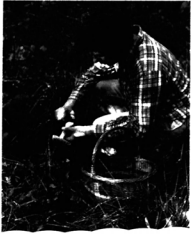
Exercice IV
Comment on the following statements or questions, following the model. You are stating your opinion about the act or condition that someone has just reported to you; thus it is likely you will use an expression that requires the subjunctive in the dependent clause. Remember, there is no "future" subjunctive: the present subjunctive expresses both present and future time.
Model: —Tu sais, Jean part demain.
—Oui, je le sais et je suis contente qu'il parte!
- —Vos étudiants font leurs devoirs?
—Non, ils ne les font pas, et... - —Claudine sort avec Pierre ce soir, n'est-ce pas?
—Oui, elle sort avec lui, et... - —Mon prof quitte l'université.
—Ah, oui? Je ne le savais pas. Est-ce que tu... - —Ton fils finit ses études cette année?
- —Nous prenons une décision importante.
- —Paul sait que nous sommes mariés.
- —Marie est fatiguée.
RECEVOIR, to receive
| Je reçois une lettre. | I receive a letter. |
| Tu reçois une réponse. | You get a reply. |
| Elle reçoit tous les jeudis. | She receives every Thursday (i.e., has open house). |
| Nous recevons des amis demain. | We're having some friends over tomorrow. |
| Vous recevez un télégramme. | You receive a telegram. |
| Ils reçoivent un coup de fil. | They receive a phone call. |
| Passé compose: j'ai reçu, ... | |
| Imparfait: je recevais, ... | |
| Futur: je recevrai, ... | Futur proche: je vais recevoir, ... |
Lecture
This reading selection is in two parts: first, a handwritten letter to a prospective employer; second, a typewritten curriculum vitae (résumé) that would be included with that letter. These are taken from a guide for writing CVs in France. We do not expect you to understand everything in this selection. There are technical terms and abbreviations that may mean nothing to you, and there is little reason for you to learn them. The purpose is to show you an applicant's letter and a CV and to provide some material for a brief discussion of job-hunting. You will be surprised how easy some of the sections are to understand.
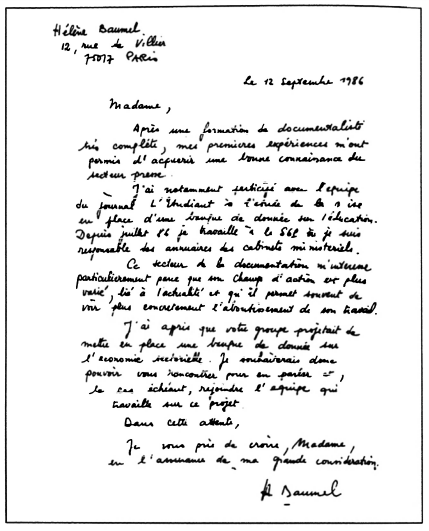
Glossaire
| formation. . . training | annuaires. . . annuals3 |
| d'acquérir. . . acquire | l'actualité. . . the present |
| secteur. . . publishing field1 | l'aboutissement. . . the results |
| mise. . . setting up | le cas échéant. . . should the occasion arise |
| banque. . . data bank2 |
1 Secteur is a common generic term; we do not use the cognate "sector" as often, although we hear "the private sector" (= le secteur privé)
2 Note that the applicant wrote donnée, with no s.
3 Annual listing, as in annuaire téléphonique; here it refers to a listing of government offices.
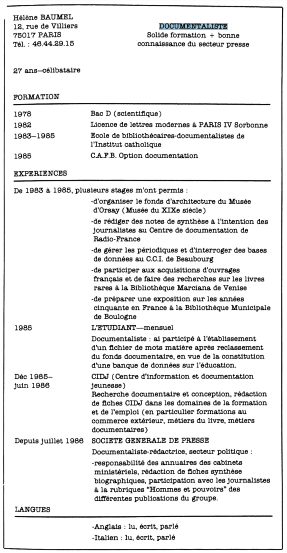
célibataire unmarried
rédiger edit
gérer manage
les années fifties
fichier index
reclassement reclassification
Common and Uncommon Knowledge
- Rightly or wrongly, France is known more for its writers and painters than for its musical composers. Name two famous French composers and name one work of each.
- Nommez le sculpteur français le mieux connu.
- Quel est votre cinéaste français préféré?
- Où faut-il aller pour regarder la Victoire de Samothrace?
Vocabulaire
NOMS
| un cinéaste | film producer, director |
| un instant | instant, moment |
| une littérature | literature |
| une occasion | chance, opportunity |
| une pyramide | pyramid |
| un sculpteur | sculptor |
VERBES
| s'agir de | to be about |
| augmenter | to increase, raise |
| conduire | to drive; conduct |
| cultiver | to cultivate |
| se cultiver | to become cultured |
| s'excuser | to excuse oneself |
| féliciter | to congratulate |
| s'inquiéter | to worry |
| mûrir | to mature (person); ripen (fruit) |
| prendre une décision | to make a decision |
| produire | to produce |
| recevoir | to receive |
| séduire | to seduce |
| se spécialiser | to specialize, major in |
ADJECTIFS
| désolé | sorry |
| ravi | delighted |
| remarquable | remarkable, grea |
| scolaire | academic |
| soulagé | received |
CONJONCTIONS
| puisque | since |

